Away from Us ... Moving Somewhere Else
We’re grateful to the Anton Kern Gallery for hosting the presentation.
There are 150 early ink and graphite drawings by Andy Warhol that have never before been exhibited.
Andy Warhol observed this country from the inside as a first-generation American. He would later witness and illustrate his own society’s shift toward the industrial. These early works also offer a meditation on pure observation. What is out there and how do we see it?
The characters in Elena Attala Perazzini’s books arrive to the United States at various points intheir lives and offer another perspective: that of the modern immigrant. ‘In Via da Noi, Away from Us’ Elena interviewed more than 30 Italians before deciding on seven for her book. She chronicled their journeys starting from their initial decision to leave Italy to their triumphs and frustrations once arrived on American soil. In addition to their fascinating and poignant tales, these characters bring another layer to the complex character of America – expectation and preconception.
Elena, how did you have the idea for VIA DA NOI, (Away From Us)?
It happened one day, answering the umpteenth question of a young American asking me why I had left my beautiful country, a country where he dreamt of moving to.
I decided I wanted to give a voice to the new immigrants. There are plenty of books and movies about the first immigration at the beginning of the 20th century, but there’s no literature on the people that migrated in the last decades. The first immigration was fueled by poverty and hanger, the new one by totally different reasons.
And I was curios to know who are the Italians that came to America but made a very different choice from mine.
Different in which way?
By deciding to go live in other places and not in New York. To me, America is New York. I landed here, fell in love with it, and this is what I know. But by traveling for interviewing the protagonists, I learnt that this huge country has strong cultural diversity.
Italians profiled in the book include: Mario Fratti, playwright, critic and professor emeritus at Hunter college, best known for his Tony-Award winning musical, NINE; Dr. Giovanella Moscovici, a biologist who worked alongside a Nobel prize winning researcher; Ascanio and Angela, who both escape to America, one to get away from a heavy family heritage, the other, to free her sexual identity; Michele, a young entepreneur; Alessandra Lucchini, a nano-technology engineer; each with their own set of goals, desires, and expectations.
It also includes Gino Angelini, a celebrity chef in Los Angeles whose story has been translated into English and available by the title “The Last Bet”.
How did you choose the main seven stories?
I wanted to portrait different stereotypes of escapes, and of choices. The stories are very different on many levels. The time when they arrive, the industry they work in, the motivations that drove them to leave, the age of the protagonists. I wanted to also narrate the story of who decides to revolutionize his life when he’s close to forty years old, like Mario Fratti and Gino Angelini. Risks and consequences are more significant at that age. But I mainly chose the stories that intrigued me on a human and existential levels. Existential reasons are a big drive for the choice of changing your life by moving somewhere else.
What are the answers that surprised you the most?
When the 82 years old biologist came to pick me up in a small airport in the North of Florida, I was very eager to start asking her questions, knowing she worked on important researches such as stem cells. Once in her Golf Volkswagen car, with loud opera music playing, I asked her “what brought you to America, and what made you decide to devote your life to science?” Her answer was: love.
I was surprised when Mario Fratti, explaining me his seven years of struggle looking for a producer for his musical in the late seventies, told me that Italians were discriminated because first of all, they didn’t and don’t go to watch musicals, and second, because they were still politically labeled as fascists.
Another answer was by Ascanio, whose experience was overall a negative one, who told me that he thought he could run away from everything by moving to another country, but he had realized how you can never run away from yourself.
Should you ever return to Europe, what will you bring back from the United States?
I would bring back the idea of not expecting anything to happen from “above”.Here, nobody takes care of your desires, of your dreams. Not the government, not the institutions. In Italy, due to a strong social welfare system which I’m very appreciative of, we’re used to think that somebody else will provide us with what we need. In America you learn how everything depends on you only. On your will, on your capability of pursuing your dreams.
Among Andy Warhol’s famous philosophies there is something similar to what you’ve just said. “They always say time changes things, but you actually have to change them yourself.”
If you had to chose some words that represent the themes of this book, which ones would they be?
Searching, desire, restlessness, change, challenge (challenging yourself sometimes it’s a stronger motivation than proofing the world), freedom, abandonment, nostalgia, regret, meritocracy, love.
Another important issue is identity.
Yes, it is. By embracing a new culture, at the beginning you feel that your roots are even stronger. But after some time, you realized that you no longer belong to the culture where you come from, but you don’t even belong to the new reality you live in. So sometimes you experience the sadness of loss, sometimes the richness of containing within yourself the best of two cultures. For all the people featured in the book it has been difficult managing and accepting this aspect. But I think that feeling lost, it might give you a new strength, and that the emptiness it can be a chance to reinvent yourself. And America is the right place to do it.
The book translated in English is “The Writer’s Assistant”. It’s Elena’s own coming to America story that recounts in detail her job as the assistant to Oriana Fallaci. When she retains the position she ends up learning as much about writing as she does about her severe and mysterious boss.
Oriana was known for her abrasiveness. How did it feel to be insulted by someone you admired so much?
I realized I was a little masochist, because I would cry on my return home, but I would go back every morning. But I had a goal. I was sure that sooner or later, Fallaci’s human side would have appeared. And it did.
How?
On the day I had decided finally to quit, after a spite she had done to me and insistence by my boyfriend, she unexpectedly invited me on the second floor where I wasn’t usually allowed. We had champagne and raspberries and we started talking as two old friends.
For anyone who may not be familiar with Oriana Fallaci as a public figure, can you compare her to an American celebrity?
Barbara Walters. And as a young woman just moved to a new county, it’s like if a young actress became assistant to Meryl Streep.
If a young Italian girl had just arrived in New York city and told you she wanted to be a writer, what advice would you give?
I would tell her that this is the right place to find inspiration. And I would suggest her to not wait. I always loved writing, and I started doing it sporadicly since I was 18, but I thought I had to experience life more, before being able to write something interesting. So, I would tell her to just sit in front of her computer, or a blank piece of paper and start. You learn how to do it and you learn what is the story you want to tell, just by start writing.






























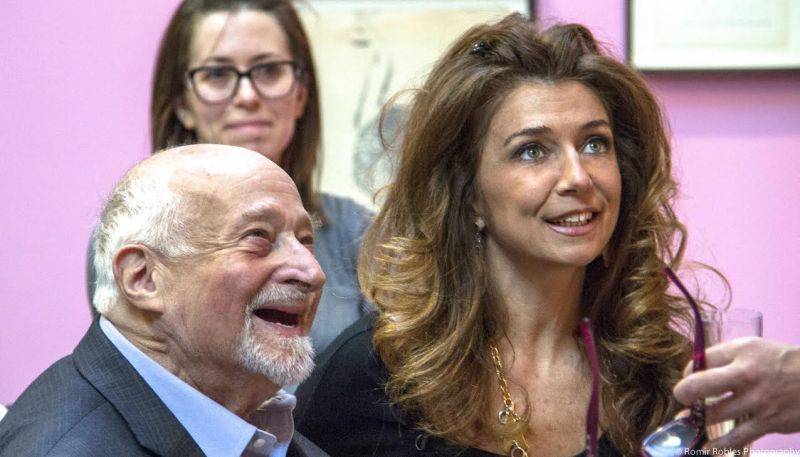
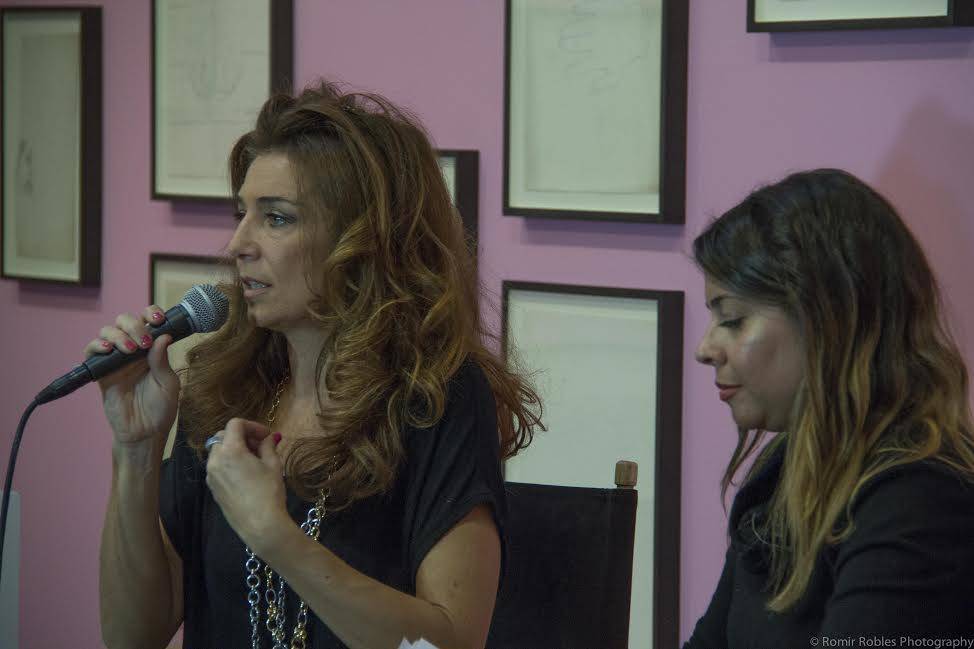
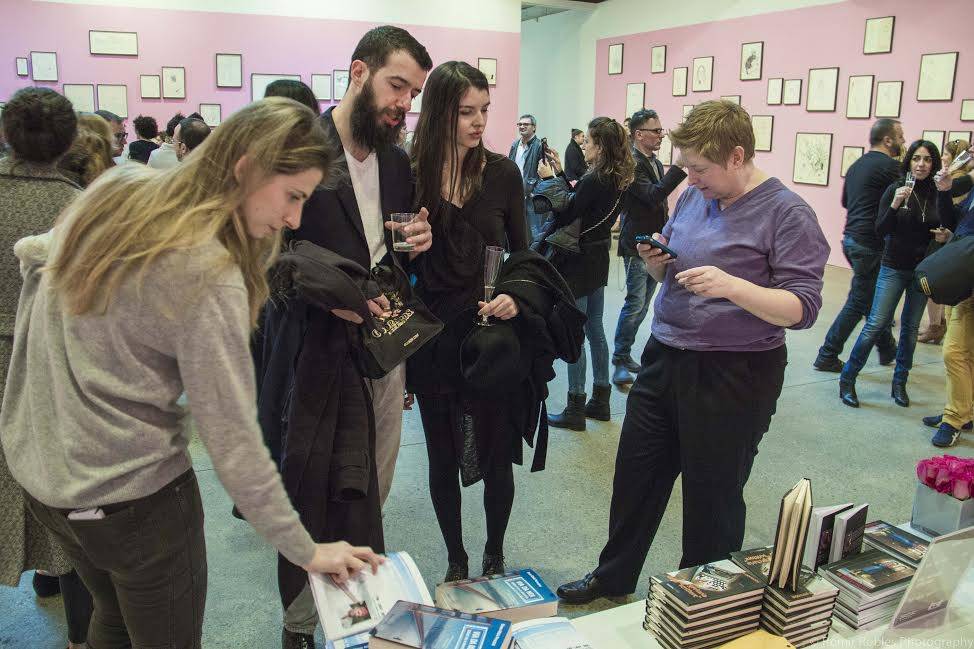
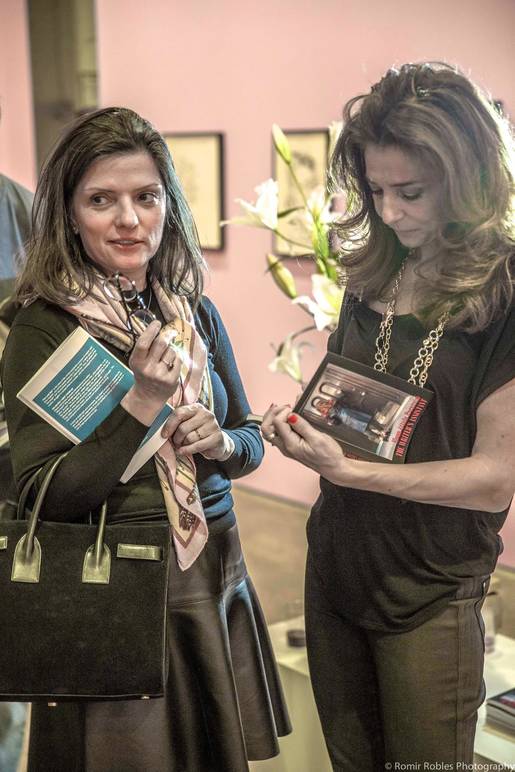
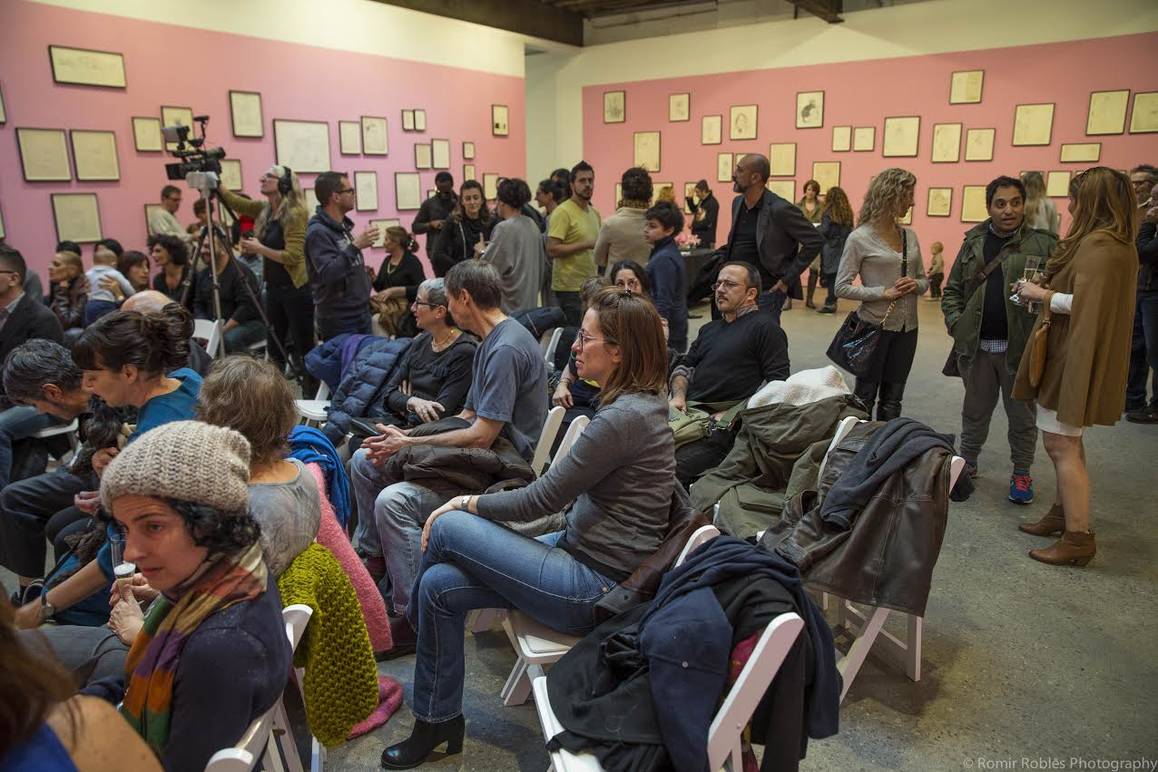



i-Italy
Facebook
Google+
This work may not be reproduced, in whole or in part, without prior written permission.
Questo lavoro non può essere riprodotto, in tutto o in parte, senza permesso scritto.